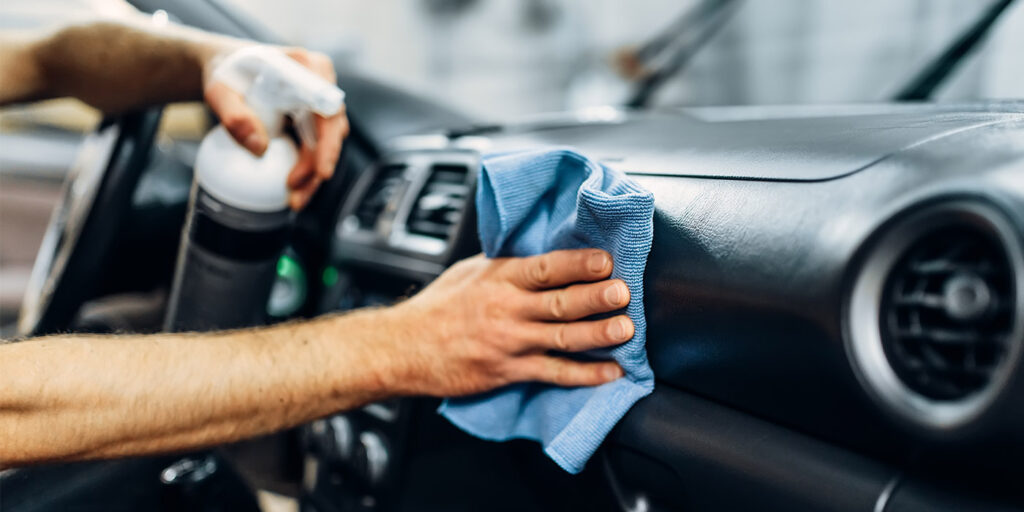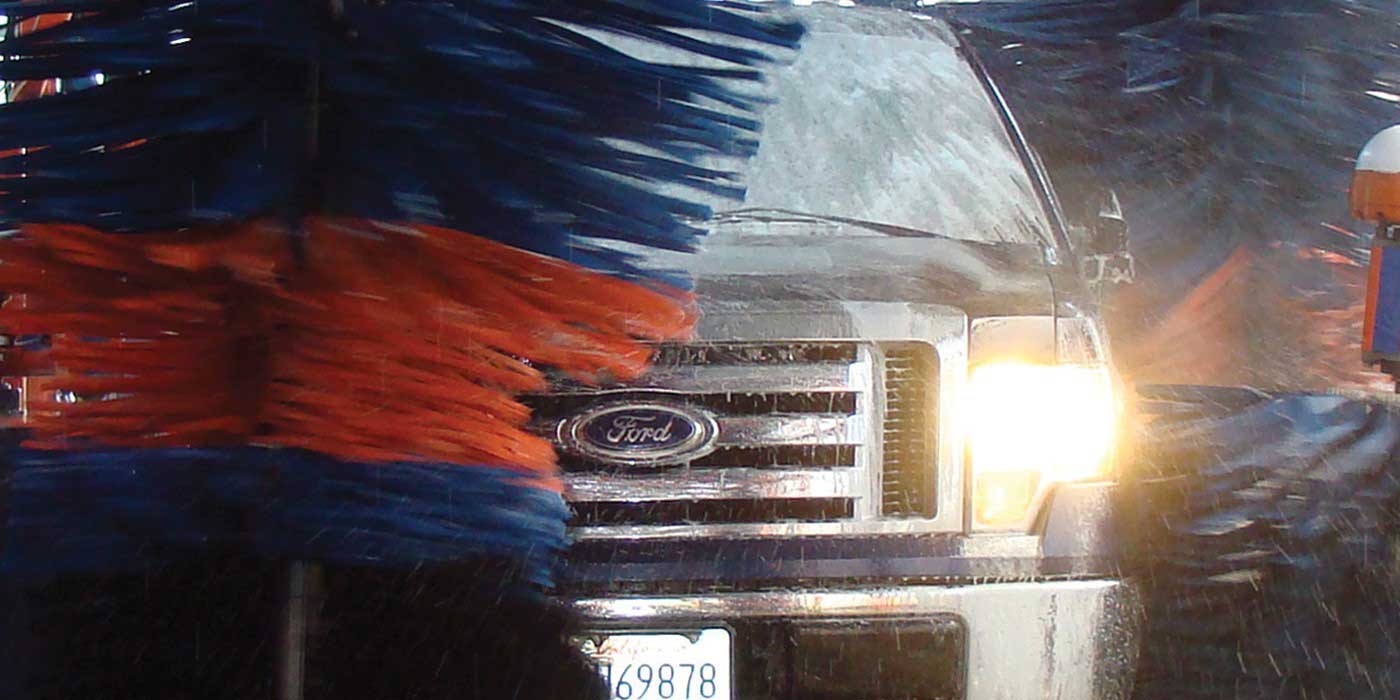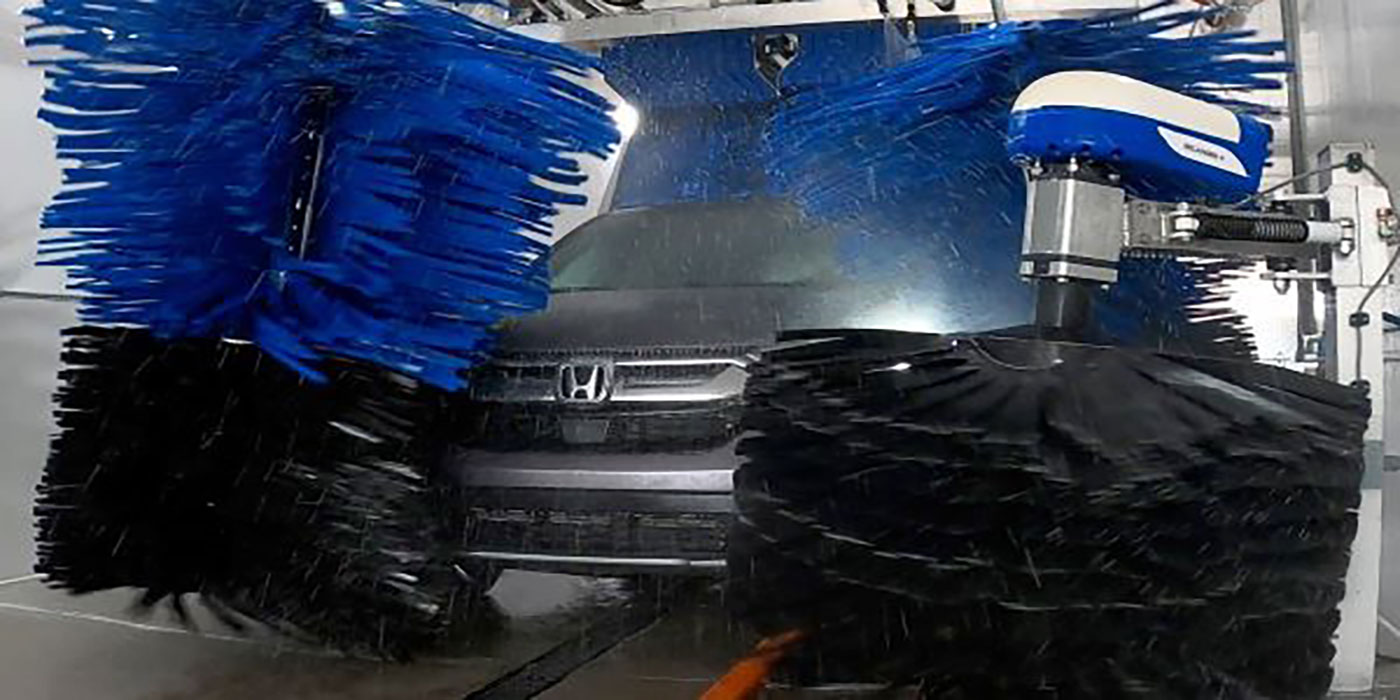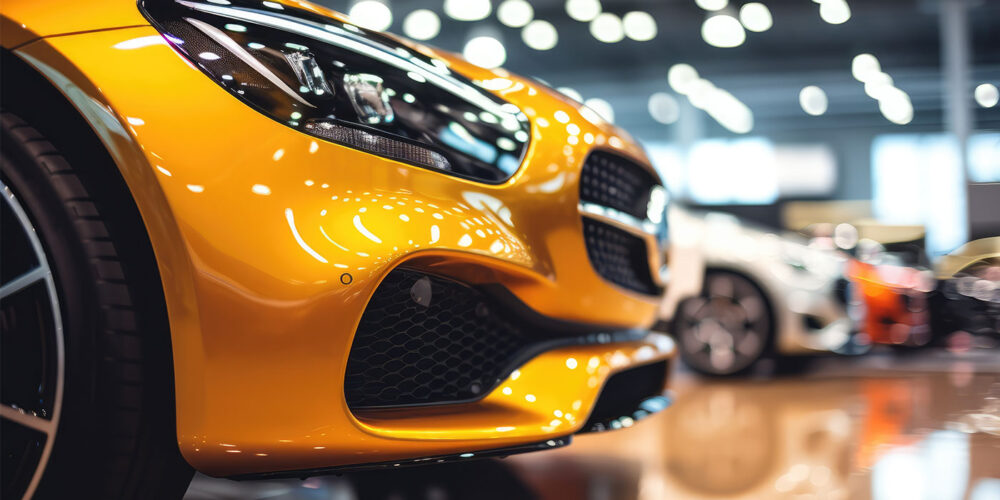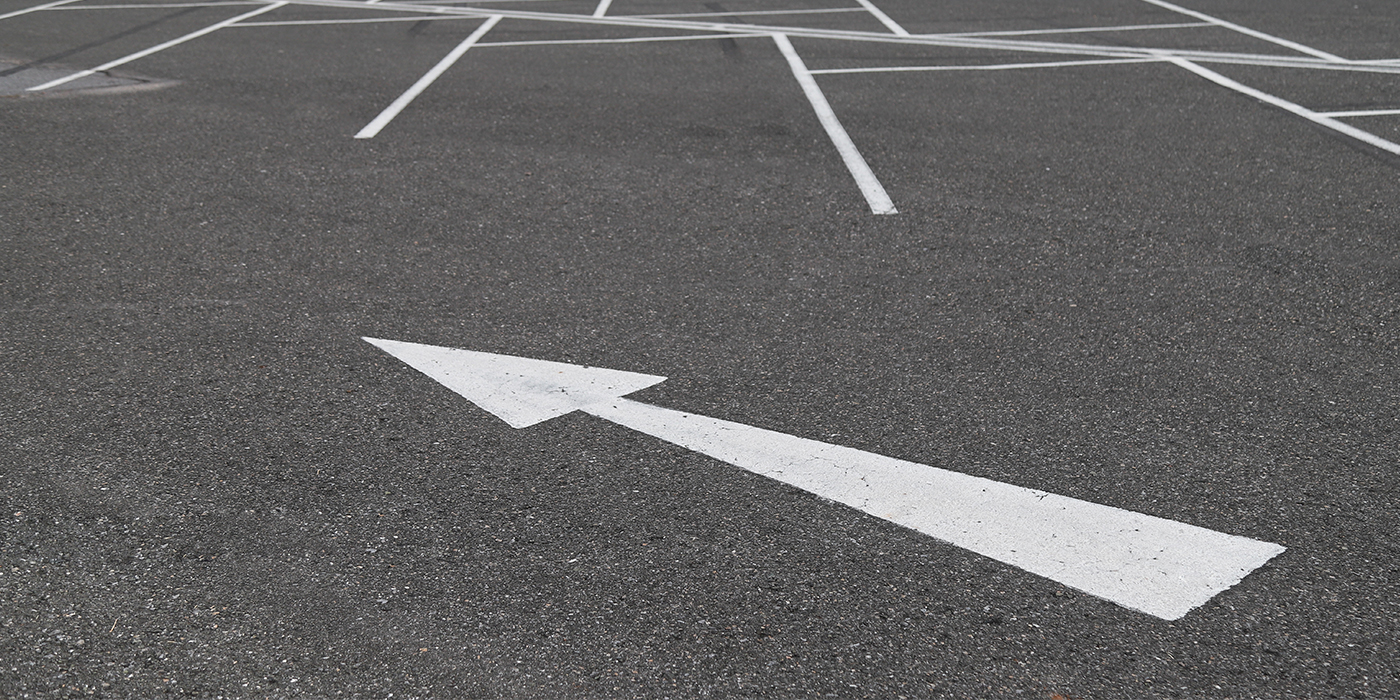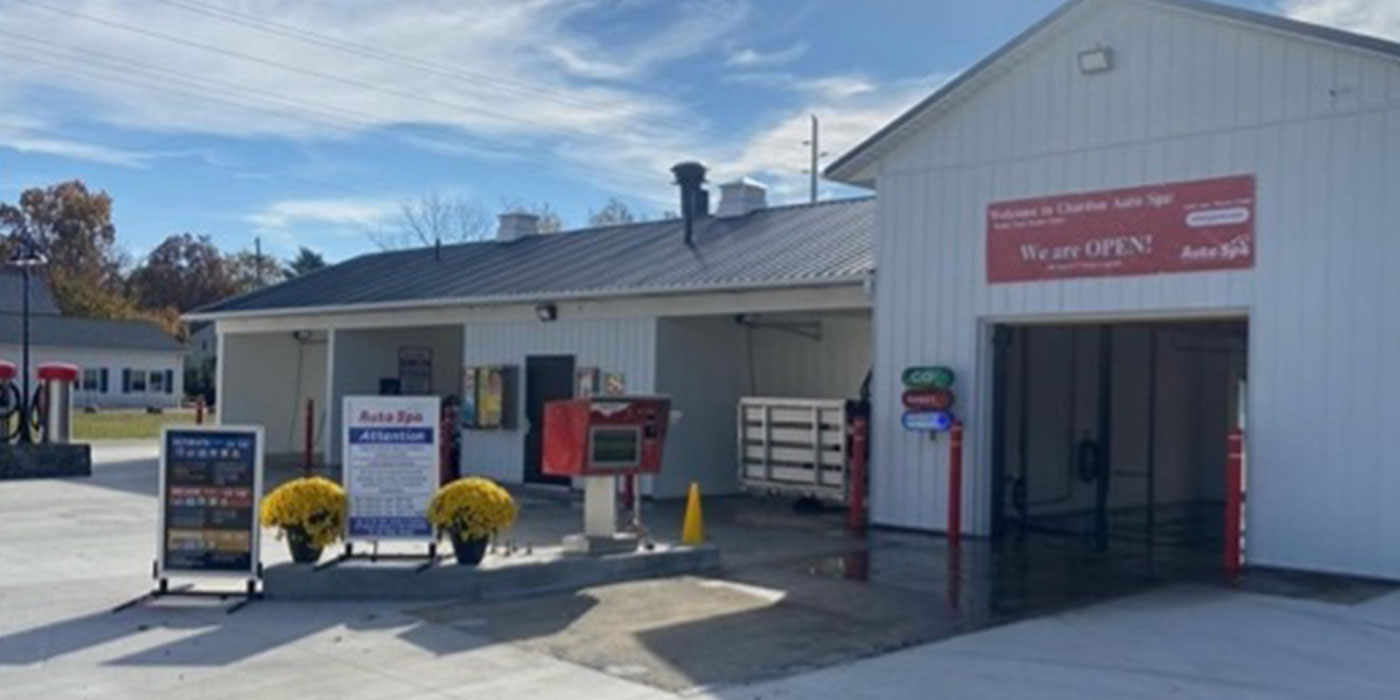Many factors can separate an excellent interior detailing job from a poor one. Your technique goes a long way, but it’s also crucial to ensure you use the right tools of the trade.
Choosing between cleaning products is about more than price and efficacy. Some readily available and even popular options can damage car interiors. You want to avoid that, considering how some customers may pay up to $300 for these services.1 Other products may even endanger your health.
Here are seven types of products to avoid when detailing interiors.
1. Silicone dashboard protectants
You should avoid silicone-based dashboard protectants when cleaning the dashboard and similar surfaces. These solutions are popular in some circles because they leave a glossy finish, but this is actually a problem in practice.
Dashboards shouldn’t be reflective because they could shine light into drivers’ eyes, making it harder to see. This glare is a serious safety issue, with accidents in bright sunlight contributing to 5,000 more days in the hospital for car crash patients.2 Protect your customers and avoid glare-causing silicone protectants.
Opt for cleaners and protectants that produce a matte finish instead. Some people may not like the look as much, but it’s a safer alternative. It’ll also attract less dust, keeping it clean for longer.
2. Bleach
One of the most important things to avoid is bleach. This may seem obvious to some professionals, but bleach misuse is surprisingly common. In a 2020 survey, medical professionals found that 39% of Americans had misused bleach or similar disinfectants within the previous month.3
The temptation to use bleach-based cleaning products may arise when considering their potential as a stain remover. Some interior materials, like microsuede, can stain with just water, and bleach is a powerful cleaner.4 However, it’s often too corrosive and can leave stains of its own or permanently damage some materials.
Check your cleaning materials’ ingredients for bleach before using them. You may know not to use bleach itself, but you may not realize that other cleaners often contain the chemical.
3. Dish soap
Dish soap is another common cleaner you shouldn’t use on car interiors. These may seem fine at first because they’re safe for food surfaces and don’t pose any health risks. They’re also affordable and widely available, so it can be tempting to use them to keep costs low.
Dish detergent may be cheap, but it’s also harsher than what you need for car detailing. These products remove grease by design, but they often also take many car protectants with them. They may be OK to use once or twice, but repeated use could wear some fabrics and surfaces down until they start to degrade.
You should avoid dish soap in any capacity on car exteriors, and it’s best to go by the same principle for interior detailing. A small amount may be fine, but the risks of repeated or excessive use outweigh the benefits.
4. Ammonia-based glass cleaners
Another common class of cleaning product to avoid is glass cleaner with ammonia. Many household window cleaning solutions contain the chemical, albeit in low percentages. The amount of ammonia in them poses only minimal health risks, but it’s not suitable for car interiors.5
Like many other products on this list, ammonia is too harsh for a car’s unique considerations. Spilling or dripping it onto the car’s upholstery could damage it and create unpleasant smells. It may also degrade the windshield’s tint or anti-glare coating, leading to safety concerns when driving.
Ammonia-based glass cleaners will also affect the car’s touch and control panel screens. These devices may become less responsive or difficult to see as the ammonia wears away at their protective coatings. Avoid these undesirable outcomes by double-checking your glass cleaner to ensure it’s ammonia-free.
5. Alcohol-based products on leather
Some products are perfectly suited for some parts of an interior detailing job, but not all products. That’s the case with alcohol-based cleaners. Alcohol is generally a gentle and effective chemical on most surfaces, but it can damage leather seating.
Alcohol can ruin the urethane coating that most leather seats feature.6 Wiping this protective layer away will expose the underlying material to heat, air and other contaminants. Consequently, it could get dirty, harden or crack over time, ruining the customer’s interior.
This applies to real and imitation leather. Opt for dedicated leather cleaners instead, and, as with other products, check the label to ensure they don’t contain alcohol. Alcohol-based cleaners can be safe and effective if you’re not dealing with leather, though.
6. Naphthalene
Some cleaning products to avoid when detailing interiors not only pose risks to cars, but to your health as well. For example, naphthalene can endanger your health, so it’s best to avoid it for your own sake. Naphthalene doesn’t appear in many cleaners, but it’s still present in some, so check your labels to ensure you don’t use it.
Naphthalene is perhaps most well-known for its role in mothballs, but some carpet cleaners, all-purpose cleansers and other detailing products contain it too. Immediate exposure to the chemical can cause eye and throat irritation and may make your skin itch.7 However, most risks come when using these products over time.
Prolonged exposure through skin contact or inhalation can cause anemia. It can also cloud your eyes, damaging your vision. It’s best to avoid the chemical altogether to protect your health and that of your employees.
7. Benzene
Another type of product to avoid for health reasons is cleaners containing benzene. Benzene is an ingredient in some detergents, dyes and lubricants, so you may encounter it when selecting cleaning products. This chemical is fairly common but can pose serious health risks.
Benzene causes cells to not work correctly, resulting in several issues. They can range from anemia to white blood cell loss, affecting your immune system. Long-term, repeated exposure can even cause leukemia.
Most benzene poisoning happens through inhalation. They are easier to breathe in when working in a cramped car interior. Benzene is becoming less common in standard cleaners, but it’s still worth looking out for to avoid.
Use the right products when detailing interiors
You can make the most of your interior detailing when you know which products you should and shouldn’t use. You can then provide long-term value to customers by preventing damage and protecting your employees’ health. There’s more to detailing than what products you use, but making these choices is a crucial first step.
Sources:
1https://www.autotrader.com/car-tips/cost-to-detail-a-car
2https://www.ncbi.nlm.nih.gov/pmc/articles/PMC5228668/
3https://www.aarp.org/health/conditions-treatments/info-2020/cdc-coronavirus-bleach.html
4https://modded.com/how-to-choose-your-car-interiors-fabric/
5https://missouripoisoncenter.org/is-this-a-poison/glass-cleaner/
6https://www.refijet.com/cleaning-your-car-during-covid/
7https://www.dhs.wisconsin.gov/chemical/naphthalene.htm
8https://emergency.cdc.gov/agent/benzene/basics/facts.asp
Oscar Collins is the founder and editor-in-chief of Modded, where he writes about cars, car trends and auto news. Follow him on Twitter @TModded for frequent updates on his work.

